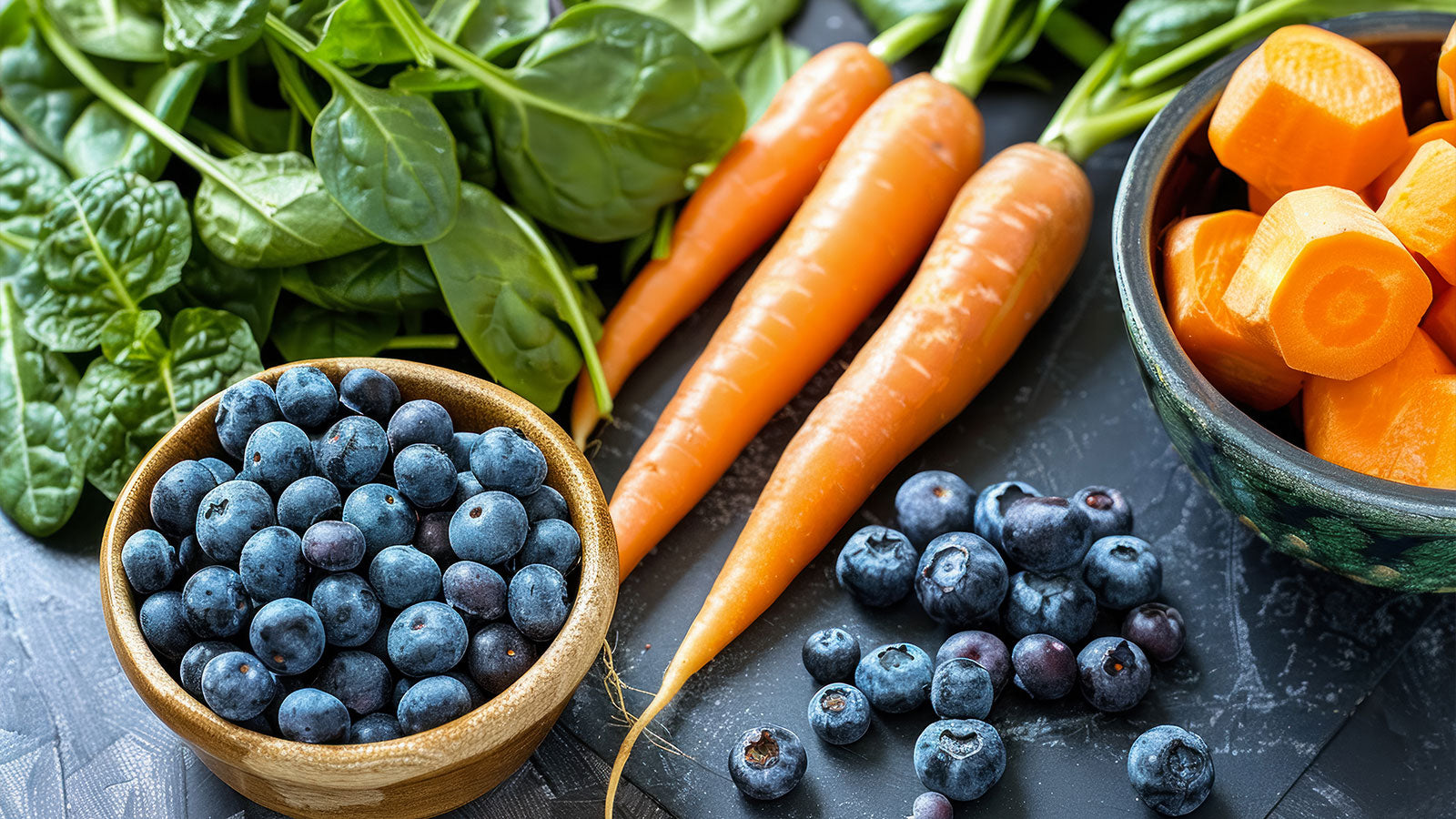Fiber plays a crucial role in maintaining your dog’s overall health, even though it is often overlooked. Many dog owners might assume that fiber is not necessary in their dog's diet, but it actually provides numerous benefits that can enhance your dog's well-being.
This article explores what fiber is, the types available, the benefits it provides, and how to incorporate it into your dog’s diet effectively.
What Is Fiber?
Fiber is a type of carbohydrate that passes through the small intestine undigested and is fermented by bacteria in the colon. This fermentation process produces short-chain fatty acids (SCFAs), which are vital for various bodily functions, including energy production, immune support, and maintaining gut health.
Types of Fiber
There are different types of fiber that can be included in your dog’s diet, each providing unique benefits:
- Soluble Fiber: This type dissolves in water to form a gel-like material. It can help lower blood cholesterol and glucose levels. Examples include pectins from fruits, beta-glucan from mushrooms, and guar gum.
- Insoluble Fiber: Unlike soluble fiber, insoluble fiber doesn’t dissolve in water. It adds bulk to the stool and aids in passing food through the digestive system. Examples include cellulose found in vegetables.
- Resistant Starches: These are a type of fiber that resists digestion in the small intestine and reaches the colon where it is fermented, contributing to SCFA production.
- Prebiotics: Certain fibers, like inulin or fructooligosaccharides (FOS), act as food for beneficial gut bacteria, promoting a healthy gut microbiome.
Benefits of Fiber for Dogs
Incorporating fiber into your dog's diet can offer a range of health benefits:
- Antioxidant Support: Fiber helps transport antioxidant polyphenols from fruits and vegetables safely through the digestive system, allowing them to reach the colon where they can combat oxidative stress.
- Immune System Enhancement: Fiber increases the production of SCFAs, particularly butyrate, which helps in building T cells that are essential for reducing inflammation and fighting disease.
- Cancer Prevention: Fiber speeds up the passage of food and potential carcinogens through the digestive system, reducing the risk of colon cancer.
- Digestive Health: Fiber aids in regulating the digestive process, ensuring a smoother flow of food through the gastrointestinal tract, enhancing nutrient absorption, and promoting healthy bowel movements.
- Weight Management: High-fiber foods can help your dog feel fuller for longer, reducing the likelihood of overeating and supporting weight management efforts.
- Diabetes Control: Fiber can slow down the absorption of sugar into the bloodstream, helping to stabilize blood glucose levels in diabetic dogs.
- Anal Gland Health: Fiber increases stool bulk, which can assist in the natural emptying of the anal glands, preventing discomfort and infections.
How Much Fiber Do Dogs Need?
The appropriate amount of fiber in a dog's diet can vary depending on individual needs. As a general rule, fiber should make up about 5-10% of your dog's diet. Start with a lower amount and adjust based on how your dog responds, particularly in terms of stool quality and digestive health. Over-supplementing with fiber can lead to adverse effects such as nutrient malabsorption, diarrhea, and bloating.
Best Sources of Fiber for Dogs
Incorporating a variety of fiber-rich foods into your dog’s diet can ensure they receive the full spectrum of benefits:
- Broccoli: Rich in fiber, vitamins, and minerals. Lightly steam or blend to enhance digestibility.
- Microgreens: Nutrient-dense and rich in fiber, but should be used in moderation due to their potency.
- Berries: High in fiber and antioxidants. Raspberries and blackberries are particularly beneficial.
- Kelp: A sea vegetable high in iron and fiber, available fresh or as a dried supplement.
- Shiitake Mushrooms: Contain beta-glucan, which acts as a prebiotic and supports the immune system.
- Leafy Greens: Kale, spinach, and Swiss chard are excellent fiber sources that also provide essential vitamins.
- Apples: A low-calorie treat that provides fiber and antioxidants. Avoid feeding the core and seeds.
- Carrots: Great for fiber and low in calories. Steam or grind to improve digestibility.
- Green Beans: Popular for weight management due to their fiber content and low-calorie profile.
- Pumpkin: Excellent for digestive health, commonly used to treat both diarrhea and constipation in dogs.
Monitoring Your Dog's Fiber Intake
Pay attention to your dog’s stool as it can be a good indicator of whether they are receiving the right amount of fiber. Healthy stool should be firm but not hard, and your dog should have regular bowel movements without straining. If you notice any issues such as diarrhea or constipation, you may need to adjust the fiber content in their diet accordingly.
Conclusion
Fiber is an essential component of a balanced diet for dogs, offering numerous health benefits, from digestive support to weight management and immune function. By understanding the types of fiber and incorporating the right sources into your dog’s meals, you can help ensure they enjoy a long, healthy life. Always consult with your veterinarian when making significant changes to your dog’s diet, especially if your dog has specific health conditions.






Share:
Chlorella and its Benefits for Pets
Can Dogs Eat Mushrooms? A Comprehensive Guide to Safe and Toxic Varieties